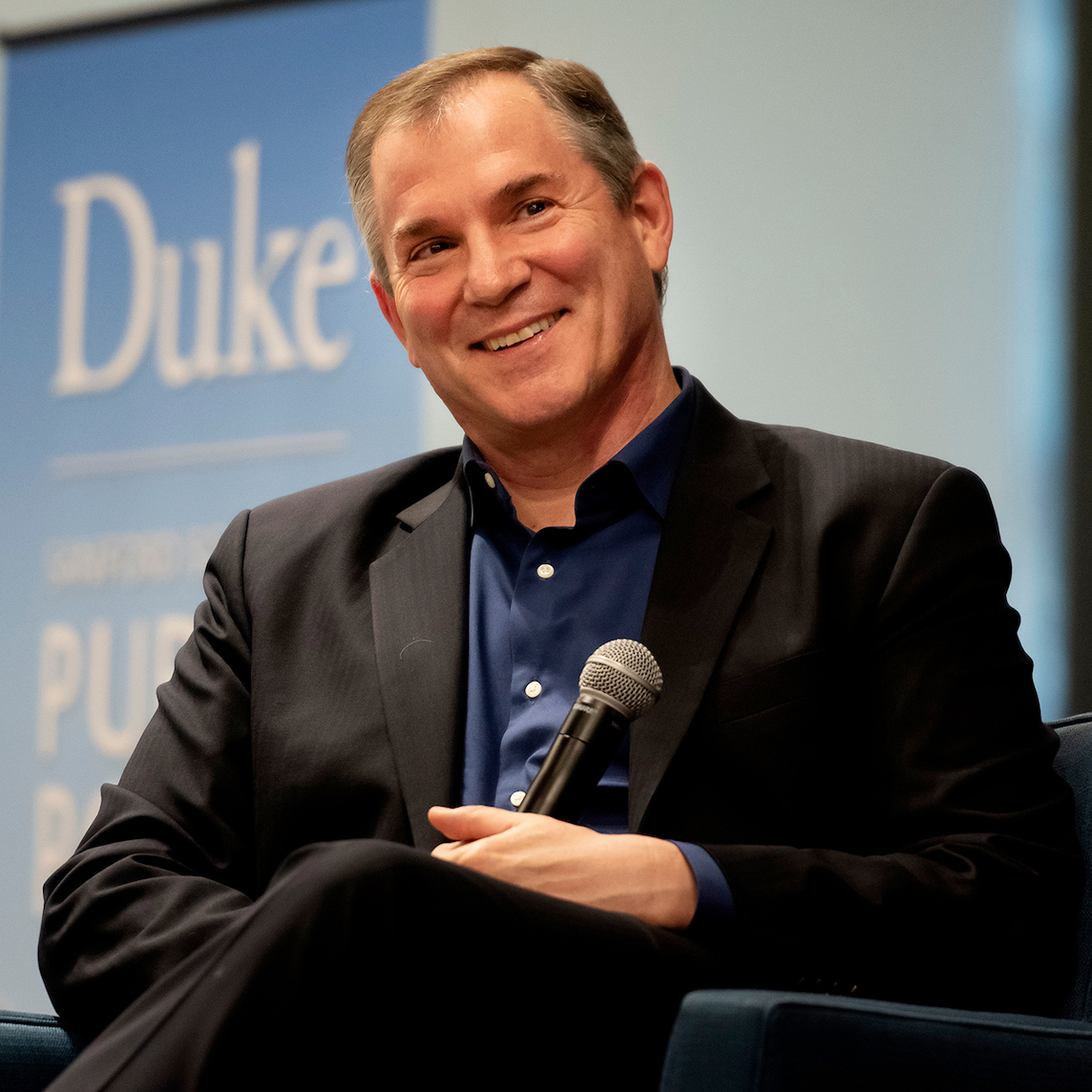Summary
Frank Bruni discusses his new book, "The Age of Grievance."
Frank Bruni is a distinguished journalist and celebrated author. He talks with Judith Kelley about his latest book, “The Age of Grievance,” which explores the cultural and political impacts of Americans’ fixation on grievances: “More and more Americans are convinced that they’re losing because somebody else is winning. More and more tally their slights, measure their misfortune, and assign particular people responsibility for it. The blame game has become the country’s most popular sport and victimhood its most fashionable garb.”
Bruni is the Eugene C. Patterson Professor of the Practice of Journalism and Public Policy at Duke.
Conversation Highlights
Responses have been edited for clarity.
On grievance as an addiction
Nothing motivates like anger. Right? And I think politicians over the past five, 10 years, have been acting on that, exploiting that as never before in my adult lifetime.
We have politicians who are trying to motivate us by telling us how apocalyptic things will be if the other side wins, how angry we should be at the other side, how vengeful we should feel, and how we should take out that vengeance by going to the polls and voting against [the other party]. How do you end up with a governable country when the losing side believes not merely that a candidate not to their liking one, but that the evil one, that the road to ruin one — how do you then find common ground, find compromise, find all of those things that you need to legislate, to move forward? It’s a real problem.
On “engines of envy”
Something has happened in our service economy where there are tiers that were never there before. There are all of these micro-climates of privilege and exclusivity, and they’re all visible to us.
Throughout your day, you are constantly reminded of who has more, of how much easier things are for them and of how far back in line you are. It is an engine of envy, like one we’ve never had before.
From American dream to American carnage
[America] a country that has always been known for optimism, and it’s been overstated over time. We’ve always had warring currents of optimism and pessimism. But I think for most of its history, this has been a fundamentally optimistic country. If you ask Americans, do you think your kids will have it better? The language changes, but it always means the same thing. That used to dependably be answered by a majority of Americans as yes, because that was part and parcel of the American mythology of the American dream. That’s not how Americans answer anymore.The reason I think this is so significant is if you no longer believe in continued growth, if you no longer believe that the pie is getting bigger, well, you begin to get much more jealous of your piece of the pie. That fosters envy. It fosters a competitive mentality, and it encourages grievance as opposed to collaboration, mutual respect, all of those things that would be much, much better for our democracy.
On humility as an antidote to grievance
I think humility is the antidote because humility tells you you’re not always necessarily right. Humility also crucially tells you that you are part of something larger.
Humility tells you the world is not going to conform exactly to your liking, and that when it doesn’t, that is not necessarily an insult or an injury. That’s called life. Humility enables you to make distinctions between when you’ve encountered an injustice that you must rail against, and when you’ve encountered a disappointment that ranks as something lower and doesn’t warrant a DEFCON 1 response. I think humility is the triumph of perspective.


